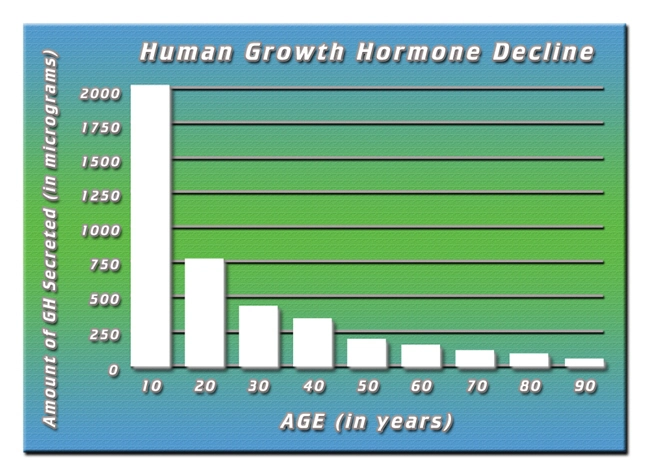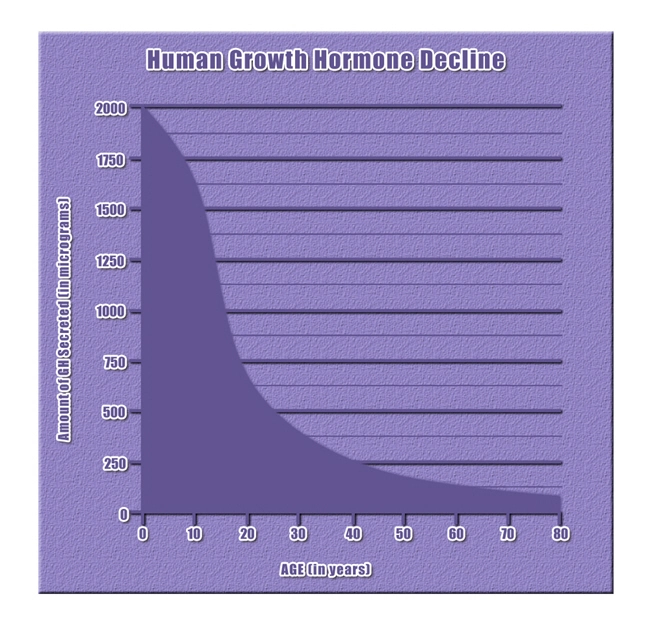

Introduction to Escitalopram
Escitalopram, commonly known by its brand name Lexapro, is a widely prescribed antidepressant that falls under the category of selective serotonin reuptake inhibitors (SSRIs). It is primarily used to treat major depressive disorder and generalized anxiety disorder. This medication has garnered attention not only for its clinical efficacy but also for its interesting chemical structure, which contributes to its pharmacological profile and therapeutic effects.
Chemical Structure and Properties
Escitalopram is chemically known as (S)-citalopram. It is the S-enantiomer of citalopram, which means it is one of the two mirror-image forms of the drug. The chemical formula of escitalopram is C20H21FN2O, featuring a fluorine atom, which is a unique aspect compared to some other SSRIs.
The presence of the fluorine atom in escitalopram’s structure is pivotal. Fluorine is highly electronegative, which enhances the compound's metabolic stability and lipid solubility. This results in better penetration across the blood-brain barrier, ensuring that the drug reaches its site of action effectively. Additionally, the specific configuration of escitalopram as the S-enantiomer increases its binding affinity to the serotonin transporter. This is significant because it implies a higher potency of escitalopram in serotonin reuptake inhibition compared to its R-enantiomer or even citalopram itself.
Pharmacodynamics: How Escitalopram Works
The primary mechanism by which escitalopram acts is through the inhibition of the serotonin reuptake transporter (SERT). By blocking this transporter, escitalopram increases the amount of serotonin available in the synaptic cleft, which helps to enhance mood and alleviate symptoms of depression and anxiety.
The high affinity and selectivity of escitalopram for SERT can be attributed to its chemical structure. The stereochemistry of the S-enantiomer allows for a more effective and efficient interaction with the transporter, which is not as pronounced in other SSRIs. This selective interaction is what makes escitalopram a potent antidepressant with a favorable side effect profile.
Clinical Implications and Usage
Escitalopram is approved for use in adults and adolescents above the age of 12 years for treating depression and generalized anxiety disorder. The effectiveness of escitalopram, as supported by numerous clinical trials, along with its tolerability, makes it a preferred option in the SSRI class.
The dosing of escitalopram typically starts at a lower dose, which may be gradually increased based on the patient’s response and tolerability. This gradual adjustment helps in minimizing side effects, which are generally fewer and milder compared to other antidepressants, thanks to its chemical specificity.
Potential Side Effects and Considerations
While escitalopram is generally well-tolerated, some individuals may experience side effects such as nausea, headache, drowsiness, and sexual dysfunction. These effects are often transient and can be managed with the help of a healthcare provider. It's important for patients to discuss their full medical history with their doctors to ensure the safe use of escitalopram, especially in the presence of other medications or health conditions.
Conclusion: The Role of Escitalopram in Mental Health
The detailed understanding of the chemical structure of escitalopram and its implications for pharmacodynamics plays a crucial role in its application in clinical settings. Its ability to specifically target the serotonin transporter with high affinity makes escitalopram a powerful tool in the management of depression and anxiety. For American males dealing with these mental health challenges, escitalopram offers a scientifically backed, effective, and manageable treatment option, making it a cornerstone in the landscape of antidepressant therapies.
Contact Us Today For A Free Consultation
Dear Patient,
Once you have completing the above contact form, for security purposes and confirmation, please confirm your information by calling us.
Please call now: 1-800-380-5339.
Welcoming You To Our Clinic, Professor Tom Henderson.

- Exploring the Relationship Between Escitalopram and Weight Changes in American Males [Last Updated On: February 16th, 2025] [Originally Added On: February 16th, 2025]
- Exploring the Therapeutic Potential of Escitalopram for Panic Disorders in American Males [Last Updated On: February 24th, 2025] [Originally Added On: February 24th, 2025]
- Unveiling the Mechanism: Understanding the Role of Escitalopram in Altering Serotonin Levels in the Brain [Last Updated On: March 2nd, 2025] [Originally Added On: March 2nd, 2025]
- Exploring the Cognitive Effects of Escitalopram: Impacts on Memory, Attention, and Executive Function in Mood Disorders [Last Updated On: March 3rd, 2025] [Originally Added On: March 3rd, 2025]
- Escitalopram Use During Pregnancy: Benefits and Risks Explored [Last Updated On: March 4th, 2025] [Originally Added On: March 4th, 2025]
- Understanding Escitalopram: Experiences of American Males with Depression and Anxiety Treatment [Last Updated On: March 5th, 2025] [Originally Added On: March 5th, 2025]
- Understanding Escitalopram's Role in Treating Adolescent Depression and Anxiety [Last Updated On: March 6th, 2025] [Originally Added On: March 6th, 2025]
- Escitalopram's Efficacy in Treating OCD Among American Males: Benefits and Considerations [Last Updated On: March 8th, 2025] [Originally Added On: March 8th, 2025]
- Safely Withdrawing from Escitalopram: A Guide for American Men on SSRI Discontinuation [Last Updated On: March 8th, 2025] [Originally Added On: March 8th, 2025]
- Escitalopram: Efficacy and Side Effects in Antidepressant Therapy for American Men [Last Updated On: March 9th, 2025] [Originally Added On: March 9th, 2025]
- Exploring Escitalopram: Key Drug Interactions to Avoid for American Males [Last Updated On: March 12th, 2025] [Originally Added On: March 12th, 2025]
- Exploring the Impact of Escitalopram on Mental Health in American Males: A Nursing Perspective [Last Updated On: March 13th, 2025] [Originally Added On: March 13th, 2025]
- Exploring the Safety of Escitalopram in Elderly American Males: Essential Precautions [Last Updated On: March 15th, 2025] [Originally Added On: March 15th, 2025]
- Escitalopram Pharmacokinetics in American Males: Optimizing Treatment for Depression and Anxiety [Last Updated On: March 18th, 2025] [Originally Added On: March 18th, 2025]
- Escitalopram's Impact on American Males: Case Studies in Mental Health Improvement [Last Updated On: March 18th, 2025] [Originally Added On: March 18th, 2025]
- Escitalopram Efficacy in Treating PTSD Among American Males: Benefits and Considerations [Last Updated On: March 18th, 2025] [Originally Added On: March 18th, 2025]
- Escitalopram's Role in Treating Social Phobia in American Males: Efficacy and Considerations [Last Updated On: March 18th, 2025] [Originally Added On: March 18th, 2025]
- Escitalopram Overdose: Symptoms, Actions, and Prevention Strategies [Last Updated On: March 18th, 2025] [Originally Added On: March 18th, 2025]
- Strategies to Boost Escitalopram Adherence in American Males: Education, Technology, and Support [Last Updated On: March 18th, 2025] [Originally Added On: March 18th, 2025]
- Escitalopram: Mechanism, Efficacy, and Safety for American Males with Depression and Anxiety [Last Updated On: March 19th, 2025] [Originally Added On: March 19th, 2025]
- Escitalopram: American Men's Experiences with Depression and Anxiety Treatment [Last Updated On: March 20th, 2025] [Originally Added On: March 20th, 2025]
- Escitalopram's Impact on Sleep: Insights for American Male Patients [Last Updated On: March 21st, 2025] [Originally Added On: March 21st, 2025]
- Escitalopram's Journey: From Lab to Lifeline for American Males' Mental Health [Last Updated On: March 21st, 2025] [Originally Added On: March 21st, 2025]
- Monitoring Liver Function in American Males on Escitalopram: Essential Guidelines and Practices [Last Updated On: March 21st, 2025] [Originally Added On: March 21st, 2025]
- Escitalopram's Minimal Impact on Blood Pressure in American Males: A 12-Week Study [Last Updated On: March 21st, 2025] [Originally Added On: March 21st, 2025]
- CBT and Escitalopram: A Synergistic Approach to Men's Mental Health in America [Last Updated On: March 22nd, 2025] [Originally Added On: March 22nd, 2025]
- Guide to Transitioning from Fluoxetine to Escitalopram for American Men [Last Updated On: March 22nd, 2025] [Originally Added On: March 22nd, 2025]
- Escitalopram-Induced Mania: Risks, Symptoms, and Management in American Males [Last Updated On: March 23rd, 2025] [Originally Added On: March 23rd, 2025]
- Escitalopram's Impact on Co-morbid Physical Disorders in American Males: Benefits and Risks [Last Updated On: March 23rd, 2025] [Originally Added On: March 23rd, 2025]
- Escitalopram: A Promising Treatment for Depression in American Men During Andropause [Last Updated On: March 23rd, 2025] [Originally Added On: March 23rd, 2025]
- Escitalopram Use and Interactions for American Males: A Comprehensive Guide [Last Updated On: March 23rd, 2025] [Originally Added On: March 23rd, 2025]
- Escitalopram: Enhancing Mental Health in American Men - Uses, Effects, and Considerations [Last Updated On: March 23rd, 2025] [Originally Added On: March 23rd, 2025]
- Escitalopram's Role in Enhancing Palliative Care for American Males [Last Updated On: March 24th, 2025] [Originally Added On: March 24th, 2025]
- Escitalopram: A Key Treatment for Major Depressive Disorder in American Males [Last Updated On: March 24th, 2025] [Originally Added On: March 24th, 2025]
- Escitalopram: Enhancing Serotonin and Neuroplasticity in American Males' Mental Health Treatment [Last Updated On: March 24th, 2025] [Originally Added On: March 24th, 2025]
- Escitalopram: Effective Treatment for Body Dysmorphic Disorder in American Males [Last Updated On: March 24th, 2025] [Originally Added On: March 24th, 2025]
- Escitalopram's Impact on Anxiety in American Males: Efficacy and Considerations [Last Updated On: March 24th, 2025] [Originally Added On: March 24th, 2025]
- Escitalopram: Effective GAD Treatment for American Males in Comprehensive Care [Last Updated On: March 24th, 2025] [Originally Added On: March 24th, 2025]
- Escitalopram Safety and Liver Disease in American Males: Pharmacokinetics and Clinical Guidelines [Last Updated On: March 25th, 2025] [Originally Added On: March 25th, 2025]
- Escitalopram: Key Insights for Managing Depression and Anxiety in American Males [Last Updated On: March 25th, 2025] [Originally Added On: March 25th, 2025]
- Escitalopram: A Promising Treatment for Seasonal Affective Disorder in American Men [Last Updated On: March 25th, 2025] [Originally Added On: March 25th, 2025]
- Escitalopram Interactions with Antidepressants: Risks and Management in American Males [Last Updated On: March 25th, 2025] [Originally Added On: March 25th, 2025]
- Escitalopram's Future in U.S. Psychiatry: Innovations for American Males' Mental Health [Last Updated On: March 25th, 2025] [Originally Added On: March 25th, 2025]
- Escitalopram in Geriatric Psychiatry: Efficacy, Safety, and Dosing for Older American Males [Last Updated On: March 25th, 2025] [Originally Added On: March 25th, 2025]
- Escitalopram in Pediatric Males: Safety, Side Effects, and Monitoring Guidelines [Last Updated On: March 26th, 2025] [Originally Added On: March 26th, 2025]
- Escitalopram: Managing Sexual Side Effects in American Males [Last Updated On: March 26th, 2025] [Originally Added On: March 26th, 2025]
- Escitalopram's Role in Managing MDD Among American Males: Efficacy and Considerations [Last Updated On: March 26th, 2025] [Originally Added On: March 26th, 2025]
- Escitalopram Use and Serotonin Syndrome Risks in American Males: A Comprehensive Guide [Last Updated On: March 26th, 2025] [Originally Added On: March 26th, 2025]
- Escitalopram's Impact on BPD Symptoms in American Males: A Pilot Study [Last Updated On: March 26th, 2025] [Originally Added On: March 26th, 2025]
- Escitalopram: Enhancing Cognitive Function in American Men [Last Updated On: March 26th, 2025] [Originally Added On: March 26th, 2025]
- Escitalopram's Long-Term Effects on American Males: Benefits, Risks, and Alternatives [Last Updated On: March 26th, 2025] [Originally Added On: March 26th, 2025]
- Escitalopram: A Journey to Recovery from Depression in American Men [Last Updated On: March 27th, 2025] [Originally Added On: March 27th, 2025]
- Escitalopram's Efficacy in Treating Post-Stroke Depression in American Males: A Review [Last Updated On: March 27th, 2025] [Originally Added On: March 27th, 2025]
- Escitalopram as Adjunctive Therapy for Bipolar Disorder in American Males [Last Updated On: March 27th, 2025] [Originally Added On: March 27th, 2025]
- Escitalopram and Alcohol: Risks and Guidelines for American Males [Last Updated On: March 27th, 2025] [Originally Added On: March 27th, 2025]
- Escitalopram's Role in Treating Eating Disorders Among American Males [Last Updated On: March 27th, 2025] [Originally Added On: March 27th, 2025]
- Escitalopram: A Promising Therapy for Neuropathic Pain in American Males [Last Updated On: March 27th, 2025] [Originally Added On: March 27th, 2025]
- Escitalopram's Efficacy in Treating Agoraphobia Among American Males: A Comprehensive Review [Last Updated On: March 28th, 2025] [Originally Added On: March 28th, 2025]
- Escitalopram: Managing Chronic Depression in American Males - Efficacy and Considerations [Last Updated On: March 28th, 2025] [Originally Added On: March 28th, 2025]
- Escitalopram's Impact on Heart Health in American Males: Benefits and Risks [Last Updated On: March 29th, 2025] [Originally Added On: March 29th, 2025]
- Escitalopram: Key Insights for American Males on Depression and Anxiety Treatment [Last Updated On: March 29th, 2025] [Originally Added On: March 29th, 2025]
- Escitalopram's Impact on Cognitive Skills in American Males: A Medical Examination [Last Updated On: March 29th, 2025] [Originally Added On: March 29th, 2025]
- Escitalopram: Enhancing Serotonin for Mood Disorder Treatment in American Males [Last Updated On: March 30th, 2025] [Originally Added On: March 30th, 2025]
- Escitalopram's Impact on Depression in American Male Adolescents: Efficacy and Safety [Last Updated On: March 30th, 2025] [Originally Added On: March 30th, 2025]
- Escitalopram's Efficacy and Management in Treating Dysthymia for American Males [Last Updated On: March 31st, 2025] [Originally Added On: March 31st, 2025]
- Escitalopram's Impact on Autonomic Nervous System in American Males: Benefits and Side Effects [Last Updated On: April 1st, 2025] [Originally Added On: April 1st, 2025]
- Optimizing Escitalopram Dose Titration for American Males: A Medical Perspective [Last Updated On: April 1st, 2025] [Originally Added On: April 1st, 2025]
- Escitalopram's Role in Managing PMDD: Efficacy, Mechanism, and Considerations for American Males [Last Updated On: April 2nd, 2025] [Originally Added On: April 2nd, 2025]









